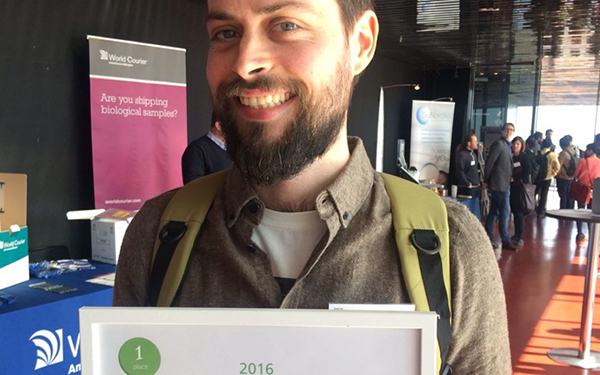The Helleday Team proudly presents our new potent MTH1 inhibitor Karonudib, which is 20 times more effective than the previously described TH588 inhibitor, recently published in Annals of Oncology. Karonudib stands for: Karolinska nudt1 (MTH1 gene name) inhibitor. In a new report published in Annals of Oncology we present that Karonudib has excellent anti-tumour activity and that it shows the strongest binding (target engagement) to the MTH1 protein out of 9301 proteins analysed inside cells. Karonudib induces toxic 8-oxoG lesions in DNA which can be fully reversed using the bacterial MutT enzyme (MTH1 homologue) or the antioxidant N-acetylcysteine, indicating an MTH1-dependent mechanism. Together with other data published in the article in Annals of Oncology, this suggests that Karonudib has a unique mechanism of action in killing cancer cells and underscores that this is a potential new concept for treatment of cancer. Following regulatory authority approvals, we hope to progress with our plans to investigate the clinical safety of Karonudib in the MASTIFF trial previously presented.
Others have described MTH1 inhibitors that fail to kill cancer cells. Now we show that these inhibitors also fail to introduce the toxic oxidized nucleotides into DNA. So, very simply put, if the inhibitors do not induce the toxic 8-oxoG lesions in DNA they will not kill cancer cells. The reason these inhibitors do not work is explained by the complex MTH1 biology. Together with other scientific groups we are working hard to identify more of the underlying MTH1 biology and understand the pharmacology of our MTH1 inhibitors.



